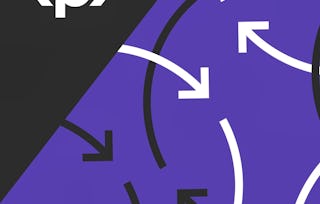Updated in May 2025.
This course now features Coursera Coach! A smarter way to learn with interactive, real-time conversations that help you test your knowledge, challenge assumptions, and deepen your understanding as you progress through the course. This Ruby programming course starts by guiding you through the setup on different operating systems, covering macOS and Windows, to build a solid foundation. You will learn command-line navigation, tool installation, and writing your first Ruby code. -The course then dives into the core aspects of Ruby, including object-oriented programming (OOP), teaching you to create and manipulate objects and understand how Ruby’s OOP enhances code reusability and readability. -Essential programming concepts like variables, methods, and control structures are also covered, ensuring a comprehensive understanding of writing efficient Ruby code. -Advanced topics such as predicate methods, blocks, and conditionals are explored in the final sections, enabling you to write complex and functional Ruby programs. -Practical examples and exercises are provided to tackle real-world programming challenges. This course is ideal for aspiring programmers, software developers, and tech enthusiasts, including those with experience in other languages looking to add Ruby to their skill set.
















